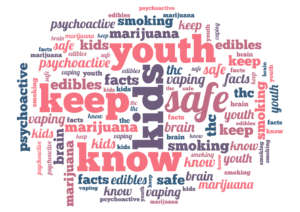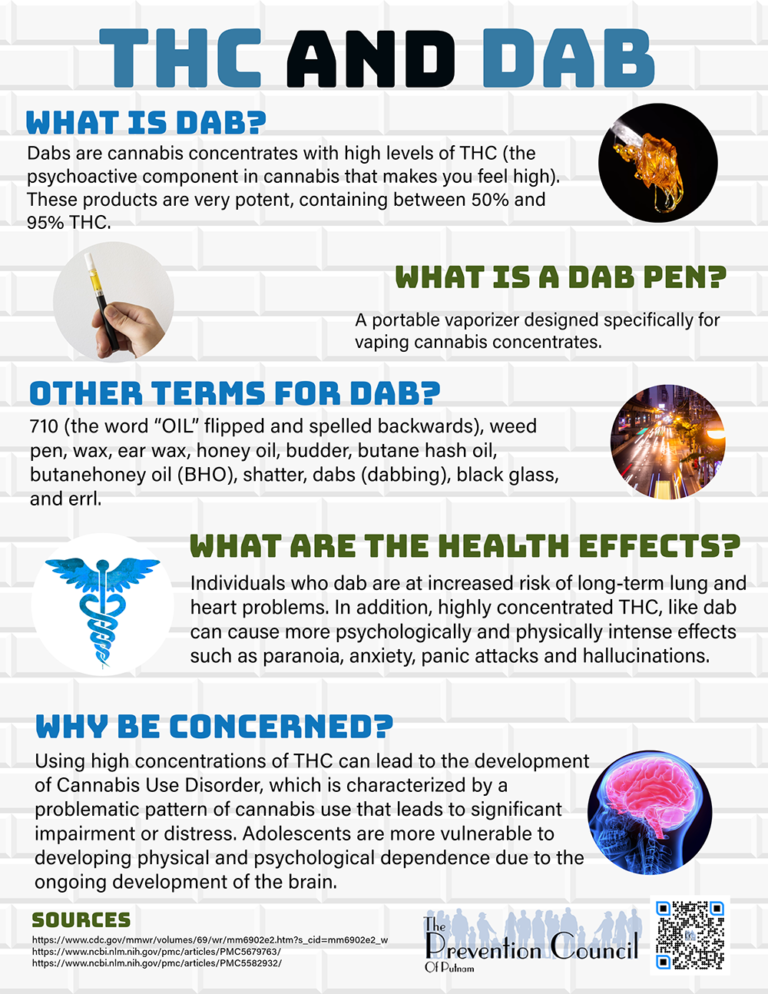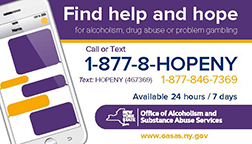
Keeping Kids Safe
Marijuana (cannabis) is now legal for medical or recreational use in most U.S. states. That means the availability of tempting treats that contain tetrahydrocannabinol (THC), the psychoactive ingredient in marijuana, is on the rise.
Vaping
Learn more about vaping and it’s dangers.
THC and DABBING
Dabs are cannabis concentrates with high levels of THC (the psychoactive component in cannabis that makes you feel high). These products are very potent, containing between 50% and 95% THC.
A portable vaporizer designed specifically for vaping cannabis concentrates.
710 (the word “OIL” flipped and spelled backwards), weed pen, wax, ear wax, honey oil, budder, butane hash oil, butanehoney oil (BHO), shatter, dabs (dabbing), black glass, and errl.
Individuals who dab are at increased risk of long-term lung and heart problems. In addition, highly concentrated THC, like dab can cause more psychologically and physically intense effects such as paranoia, anxiety, panic attacks and hallucinations.
Using high concentrations of THC can lead to the development of Cannabis Use Disorder, which is characterized by a problematic pattern of cannabis use that leads to significant impairment or distress. Adolescents are more vulnerable to developing physical and psychological dependence due to the ongoing development of the brain.
420
 Your kids know what 420 means, do you? They are probably referring to “National Weed Day.” This is not a calendar holiday, but celebrated by many people who smoke marijuana.
Your kids know what 420 means, do you? They are probably referring to “National Weed Day.” This is not a calendar holiday, but celebrated by many people who smoke marijuana.
Despite marijuana’s growing social acceptance, it remains a substance with documented health implications, particularly for adolescents. Studies consistently highlight its impact on cognitive development, mental health, and overall well-being among young individuals.
Sources:
NIDA. Cannabis (Marijuana) Concentrates DrugFacts. National Institute on Drug Abuse website. https://nida.nih.gov/publications/drugfacts/cannabis-marijuana-concentrates. June 25, 2020 Accessed April 18, 2024.
Stuyt E. The Problem with the Current High Potency THC Marijuana from the Perspective of an Addiction Psychiatrist. Mo Med. 2018;115(6):482-486.



